|
|
 Boost your site's search engine ranking
Boost your site's search engine ranking
Designing your home page
By Mike Slocombe for Internet Magazine, May 2004
1. Kill all splash screens
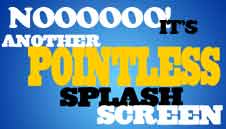 Splash screens are not only a bandwidth wasting, highly irritating, time wasting distraction to most surfers - they're also a complete disaster when it comes to search engines, some of which won't even bother indexing any further into the site.
Splash screens are not only a bandwidth wasting, highly irritating, time wasting distraction to most surfers - they're also a complete disaster when it comes to search engines, some of which won't even bother indexing any further into the site.
Let people - and search bots - find what they're looking by offering straightforward information and clear links rather than pointless spinning fluff and whirry things.
More info:
'The splash screen must die'
2 Tell frames to flip off
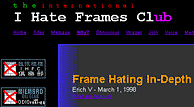 Frames and search engines go together like Cardiff City and Swansea.
Frames and search engines go together like Cardiff City and Swansea.
Yep, they really don't like each other very much.
In fact, some search engines dislike framed sites so much that they'll either ignore the content completely or make a right botch of indexing it.
If you're serious about getting a highly ranked site, we recommend redesigning your site without frames.
More info:
Optimizing Frames
Search Engines and Frames
3. Flash your kit
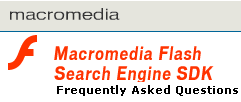 Although Flash enjoys huge browser support, not all search engine spiders have the ability to crawl or index Flash-authored sites.
Although Flash enjoys huge browser support, not all search engine spiders have the ability to crawl or index Flash-authored sites.
Macromedia's Flash search engine software developer's kit (SDK) improves things by converting the text and links in Flash files into HTML for indexing, although it's far from perfect.
We recommend that you include text-only links to all the pages you want indexed by search engines.
More info:
Optimizing Flash for Search Engines
Macromedia Flash Search Engine SDK

4. Don't rely on image maps
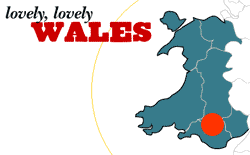 A big groovy interactive image map may well look damn funky as your primary home page interface, but it won't impress a search engine much.
A big groovy interactive image map may well look damn funky as your primary home page interface, but it won't impress a search engine much.
If you simply can't bear to part with your carefully hewn map, you'll have to add a simple navigation scheme using standard HTML hyperlinks if you want your site to be spidered.
More info: Image maps and web page design
5. Off the menu
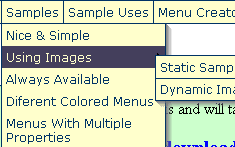 Search engine robots are busy fellas, and they haven't got time to start fannying about trying to find links lurking in JavaScript navigation.
Search engine robots are busy fellas, and they haven't got time to start fannying about trying to find links lurking in JavaScript navigation.
If your site uses smarty-pants JavaScript/DHTML menus as its primary form of navigation, ensure that you also include bog-standard HTML hyperlinks to all of your pages.
6. Dynamic doldrums
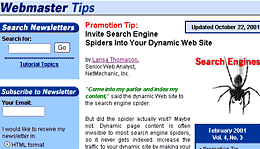 Dynamic URLs are most commonly used on database driven sites and if your pages incorporate any of the following characters - '?, &, %, +, =, $, cgi-bin, .cgi' - it's less likely that they will get listed by the major search engines.
Dynamic URLs are most commonly used on database driven sites and if your pages incorporate any of the following characters - '?, &, %, +, =, $, cgi-bin, .cgi' - it's less likely that they will get listed by the major search engines.
To ensure that your pages get indexed, create and submit static pages which include keywords relevant to your site.
More info:
Invite Search Engine Spiders Into Your Dynamic Web Site
Dynamic Pages and Search Engines
|

